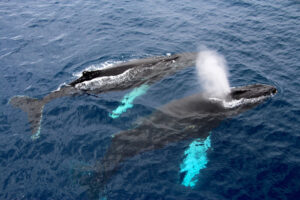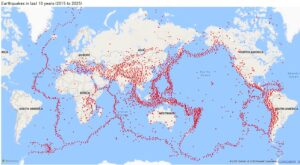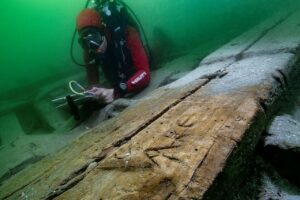A number of solo rowers are currently working their way across the oceans of the world. All are unsupported except Fedor Konyukhov, who is doing a mega-journey in stages.
Dawn Wood
The 42-year-old Essex police officer set out on January 5 from Gran Canaria, off the west coast of Africa, to row 5,000km across the Atlantic Ocean to Barbados.
Wood hopes to be just the seventh woman to complete the feat and is also chasing British rower Kiko Matthews’ speed record of 49 days, 7 hours.
After 18 days at sea in her 23-foot custom-built boat, Wood has covered almost 1,600km and is slightly behind Matthews’ pace.

Dawn Wood training for the Atlantic. Photo Dawn Wood
Richard Allen
Also taking on the Atlantic is Britain’s Richard Allen. The former Royal Marines Commando set out from Sierra Leone, West Africa on December 14 in his 7.3m carbon boat, Tamu’kke, en route to Georgetown, Guyana. To date, he has completed 2,000km, about 40 percent of his voyage.
The route Allen has chosen has never previously been attempted because it takes in the doldrums, a low-pressure area around the equator west of Sierra Leone where winds are calm. Most rowers prefer to catch an assist from tailing winds. Allen should reach his destination in two to three months.

Richard Allen’s position as of19 January.
Lee Spencer
Another former British commando, Lee Spencer, left Gibraltar last month to row 5,600km to Venezuela. If successful, he will be the first disabled rower to achieve the feat. After safely completing three tours in Afghanistan, Spencer was severely injured in a car accident in 2014.
In early 2016, Spencer was part of a four-man team of injured veterans who rowed the Atlantic in 46 days, 6 hours and 49 minutes.

Lee Spencer. Photo The Rowing Marine.fb
Despite a number of technical problems and severe seasickness, Spencer is expected to reach Las Palmas, Gran Canaria any day. Here, he will have to make essential repairs and so lose his unsupported status.
Ralph Tujin
After weeks of unfavourable weather, veteran rower Ralph Tujin finally pushed off from Portimão, in southern Portugal, on his latest attempt to cross the Atlantic. He plans to row 6,000km to Cayenne, French Guiana.

Leaving Portugal this week. Photo Ralph Tujin
Tujin boasts an extensive ocean rowing CV. He has successful crossed both the Atlantic and Pacific Oceans and made an aborted crossing of the Indian Ocean.
Fedor Konyukhov
Since leaving Port Chalmers near Dunedin, New Zealand six weeks ago, Konyukhov has completed over 3,000km on his way to Cape Horn, Chile.
The voyage is the first of three legs in the Southern Ocean. In total, he will cover an remarkable 27,000km, more than twice the diameter of the earth. The second leg, from Cape Horn to Cape Leeuwin in Western Australia, begins late this year. The final leg from Cape Leeuwin back to Dunedin runs in late 2020. Each stage should take around 120 days.
In the last week, eight-metre summer storm swells have battered Konyukhov’s boat, at times almost capsizing it. “The crests of the waves were breaking thunderously on the cockpit and I was concerned that the navigational antenna would be torn from the bridge,” he said. “I haven’t eaten hot food for nearly 50 hours.”
Fortunately, the notorious Southern Ocean has temporarily calmed down and he is back to making steady progress. “All is well with me”, he reported. “I no longer see those mountains of waves. They rise to unbelievable heights.”

Fedor Konyukhov’s squiggly progress. Photo: konyukhov.ru
In the brief periods between crashing waves, the 67-year-old Russian has reported sighting large rafts of Portuguese men-of-war and a whale bump.
His major issue is his inability to push south past the 48th parallel. “As soon as I come close, southerly winds blow the boat north,” he says. “I have only been able to reach 48°15′ degrees latitude. To traverse Cape Horn, I must get to 57° South.”
Konyukhov, an ordained Russian Orthodox priest, says that his 9-metre boat, Akros, has performed well. “It withstands every onslaught from the ocean, as do I, for now, with God’s help,” he said. The two of them are now bracing for another storm and predicted 10-metre swells later this week.






